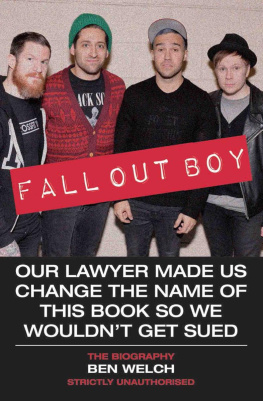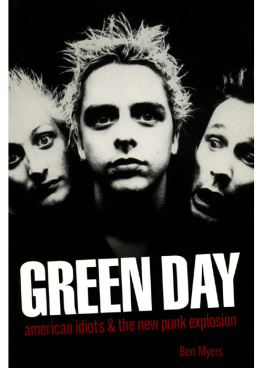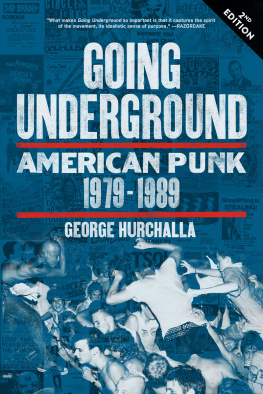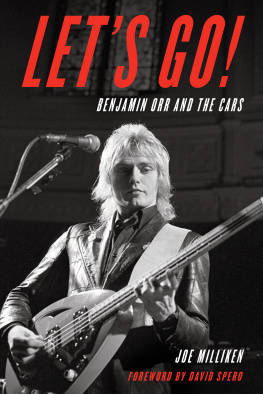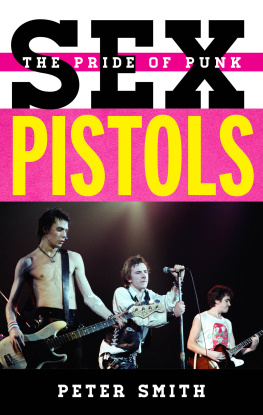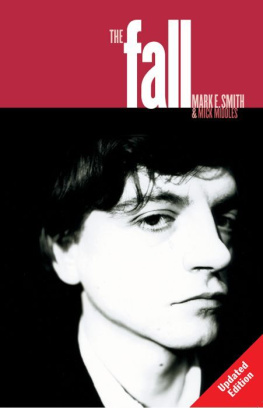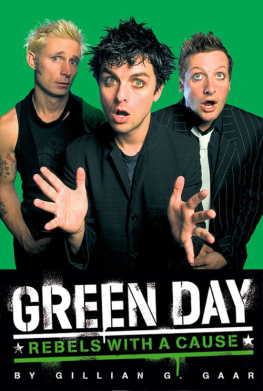O n a humid summers night in July 1979, fifty thousand people descended on Comiskey Park in Chicago, Illinois, to witness something extraordinary. Comiskey Park was the home of the White Sox and The Baseball Palace of the World, but this mob wasnt out for a ball game. They were rock fans, and tonight they wanted fire and noise. For the previous couple of years the infectious grooves of disco had been spreading over the airwaves, converting rock radio stations and displacing DJs as it went. Steve Dahl had been fired from local station WDAI, but he sensed that rock fans were ready for a fightback; under the rallying call of disco sucks, he organised an audacious spectacle to coincide with a game between the White Sox and the Detroit Tigers. It was a twilight-night double-header, and in between the two games he planned to blow up a pile of disco records in the middle of the field. All were welcome to contribute vinyl for the musical bonfire. He christened the stunt Disco Demolition Night.
But the events organisers had misjudged the depth of feeling. Thousands more arrived than could fit in the stadium so people started breaking in, and the security team were overwhelmed; they were powerless to stop records being thrown on the pitch during the game, cutting through the hot air and jutting out of the grass like landmines. When Dahl finally arrived, clad in military fatigues and lapping the stands in a jeep, the atmosphere had reached boiling point. With the detonation of the explosion thousands poured onto the field and gathered around the blaze, cheering and punching the air. Long live rock and roll, read one banner. It was a remarkable outpouring of anger from one set of music fans to another, from the all-American machismo of rock n roll to the fashion and flamboyance of disco.
Thirty-three years, six months and twenty-three days later, a Chicago band would stage their own miniature parody of Disco Demolition Night. In a snowy field with just a photographer present for posterity, they burnt their own records on a modest fire. But this was not a rejection of what had come before. This was a rebirth. They had returned to save rock n roll just not as we knew it.
H ead north out of downtown Chicago, along the shore of the vast expanse of Lake Michigan, and in about forty minutes you will reach Wilmette. Its a pleasant and well-to-do suburb, one of the so-called North Shore communities that cluster at the western edge of the lake, a village of tree-lined residential streets and well-manicured front gardens. It was in Wilmette that on 5 June 1979 Peter Lewis Kingston Wentz III was born. His mother, Dale, had family ties to Jamaica and was related to Colin Powell, who became the US Secretary of State from 2001 to 2005. His father was the second Pete Wentz, and the two had met whilst working for Democrat Joe Biden in the seventies. They were a liberal island in the sea of Wilmettes conservatism, values that would have a great impact on the younger Wentzs outlook in later years. Dale worked as an admissions dean for a local private school and Wentz II was in the legal profession. For the most part, home life was a picture of suburban normality: his dad spent a lot of time working, while his mum was in the kitchen baking stuff. It was, as he told The Independent, very non-exceptional. As a kid, he loved ThunderCats and had a crush on spotted-haired Cheetara; he enjoyed many a happy dinner eating burgers at local diner the Chuck Wagon in Wilmette; and he spent one blissful summer at the age of four visiting his aunt in Switzerland. But his early years were not without their troubles. On his sixth birthday his parents separated, and though they would reunite a few months later, he would hate birthdays from that day on.
His first memory of music is a vague and hazy one, sitting in the middle back seat of his dads car and listening to Otis Reddings (Sittin On) The Dock of the Bay on AM radio. But it was a chance encounter with the King of Pop whilst watching the Calgary Winter Olympics on TV in 1988 that really left a deep impression on him. He saw German ice skater Katarina Witt perform a routine to Michael Jacksons 1987 smash Bad, and something stirred in him. I want to make music, he thought, no doubt spurred on by the sight of a leather jacket-clad Witt high-kicking and moonwalking across the ice (Witt would win the gold that year). A fascination with Jackson and his genre-hopping futurism soon followed, but as his teenage years beckoned, his tastes would turn to music with a nastier edge.
First came a chance encounter with Guns N Roses. Extravagant, brawny, larger-than-life and with more killer riffs and catchy choruses than any one band has a right to, Guns N Roses are the ultimate gateway band to rock n roll the kind of act that changes the minds of impressionable kids forever. And when Wentz saw Axl Rose stepping off the bus in the Welcome to the Jungle video, his vague desire to make music became a burning obsession. It made me want to be in Guns N Roses or something, he said to BPM TV. I think that Axl Rose walking off the bus is an epic moment in rock n roll history. Metallicas Enter Sandman was another defining moment because the song was so big that it reached every sleepy corner of America, even well-heeled Wilmette. I remember being in the back of my parents station wagon and blasting Enter Sandman and it was cool because it was like this is my music, he told NME. Enter Sandman was so pervasive because it was played on this radio station in Chicago called B96, which usually played more urban music, but they played Enter Sandman because everyone had to play it because it was such a big song. There was something about it that made me be like, I can make music, [this is] the kind of music that I want to make. When he was old enough to have money of his own to spend, he made his first pilgrimage to a local record store called Coconut Records and bagged himself a copy of Slayers Decade of Aggression. Wentz hadnt realised that it was a double live album, but his friend was into Slayer and he knew a few of the songs listed, enough to convince him to part with his cash.
But there was still one more left turn that he needed to take in his musical development, and it came when someone handed him a Minor Threat tape. Minor Threat were a Washington DC-based punk band active for a short period in the early eighties, but during just a few years of putting out material they would have an immeasurably big impact on the development of punk rock. In the mid to late seventies punk had moved from its brash and rebellious origins into more experimental territory, with post-punk bands like Television and Talking Heads in the States, and Joy Division and Gang of Four in the UK. Meanwhile, other first-wave punk acts were moving closer to the world of pop, formulating a sound that would later come to be known as new wave. But a third new branch of punk emerged, doubling down on the aggression and abrasiveness whilst upping the tempos. This new form would come to be called hardcore, and Minor Threat were one of its driving forces. In contrast to the art-school sensibilities of post-punk and the mainstream flirtation of new wave, hardcore was fiercely political and anti-establishment, and Minor Threat went one step further by disavowing the excesses of some parts of the rock and punk world. Straight Edge, from their first EP, laid their philosophy on substance-abuse bare: Im a person just like you / But Ive got better things to do / Than sit around and fuck my head / Hang out with the living dead / Snort white shit up my nose / Pass out at the shows, barked icon-to-be Ian MacKaye, and the straight edge movement was born. Wentzs love for punk rock soon grew to include everything from the pop punk of Green Day to the more melodic hardcore of Gorilla Biscuits, as well Metallicas thrash metal and Earth Crisiss hybrid of metal and hardcore. Wentzs tastes were becoming omnivorous. As long as it was fast and loud, hed listen. I was basically into fireworks and skateboarding, he told

